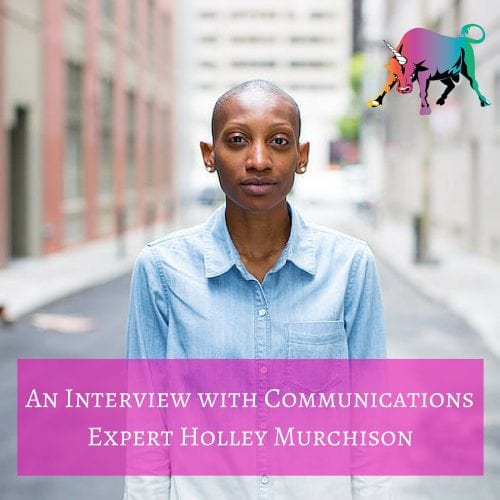When I was in college, the Dartmouth Rainbow Alliance led members and allies in participating in the national Day of Silence, a “national youth-run effort using silence to protest the actual silencing of LGBT people due to harassment, bias and abuse in schools.”
On a particular day, we would not speak, and we would wear buttons and hand out little cards to explain what the whole thing was about.
I was a first-year student, and being friendly, I asked this one senior whether she’d be participating. I asked in kind of the same way you ask, “Are you excited for the very exciting thing that’s about to happen?”
I was therefore surprised when she said no: the baddest-ass lesbian I knew would not be participating in the Day of Silence, because she felt that you persuade more people by making friends and just talking to them about your ideas. Taping your mouth shut kind of separates you from people.
I did do the Day of Silence, even though it was the day I was scheduled to read my short story aloud in my fiction class. Instead, another student read it for me. My professor commented, “Well, this kind of defeats the purpose…,” but she couldn’t really insist that I do it myself because then she would look homophobic, despite the fact that I strongly doubted that anyone in my fiction writing class was particularly homophobic to begin with.
While I think that something like a Day of Silence helps to get young people involved in activism and could really make people think in an environment where maybe a lot of people haven’t really thought about how LGBT people are silenced, my creative writing class was not one of those places. I felt like a jackass.
I’ve spent a really long time thinking about how to persuade people.
I first became interested in this topic when, around age 14, I dedicated my life to the debate team. I became very good at winning debates. (See Bullish: What I Learned from Being Captain of My Debate and Boxing Teams at the Same Time.)
But in real life, I was still not very good at persuading people, because I wasn’t popular, I was abrasive, and I insulted people I thought were stupid. (I am still sometimes abrasive, and I still sometimes insult people I think are stupid, but now I am self-aware of it. These are not the best strategies most of the time, but can still be effective when trying to persuade a third party — that is, not the stupid-ass motherfuckers being insulted.)
It was hard to see at 14 that the smartest person doesn’t always win, and that, even in those rare cases in which you could actually settle an argument by looking something up in a book or asking a teacher, people who were actually, factually, undeniably wrong would still never admit it. (“Well, you might know what that book says, but you SMELL like a book. Whatever!”)
But, of course, I think plenty of the people who were demonstrably proven wrong did change their minds. Just … later. Not in front of me.
In college, some time after my Day of Silence experience, I took a class in rhetoric. Best class ever. While there is certainly an art of persuasion, there is also a science of persuasion. We have Aristotle’s Poetics, and we have neuroscience. We can now run brain scans on people while they are listening to speeches and making decisions.
In short: People make decisions emotionally and only then use logic to shore them up. The emotion centers of your brain light up way before the logic parts kick in.
Furthermore, people mainly change their minds based on how they want to see themselves. If you want to change someone’s mind, the best thing you can do is to get the other person to associate the new view with the kind of person he or she would like to be.
And all this tends to happen later. Sometimes years later. Not only are people loath to admit they’re wrong — they typically dig in and become defensive instead — they usually don’t like to change their view if there’s any chance that the person who told them they were wrong will know about it or be able to take credit for it. Rather, people want to wait long enough that it’s as though the argument never happened, and then come around to a new point of view on their own, and then claim that their new point of view had nothing whatsoever to do with that argument, or that that argument was so long ago that they are clearly an older and different person now anyway.
Are you familiar with Despicable Tweets? It is a horrorshow of humanity. It’s screenshots of tweets that basically take the form “I’m going to rape [somebody],” followed by use of the n-word (or racial epithets I really didn’t think were even a thing, like “dot-heads”), followed by the hashtag #notracist, and then possibly “Drunk driving right now #notsorry.” It’s depressing. Very depressing.
A few months ago, someone asked the curator of Despicable Tweets, “How can you educate a person who doesn’t really want to be taught?”
The response:
At some point in my life I realized that the point of an argument or a debate shouldn’t be to change someone’s mind during it — it’s to change their mind after it. In the heat of an argument, you’re not considering what the other person says as possibly convincing, you’re analyzing it for holes and for opportunities to counter-attack.
But a worthwhile argument sticks with you, and the next couple of days you can’t get it out of your head. You think of the point you couldn’t effectively rebut, or one that you parried away on a technicality. Many years ago, I was dating someone whose philosophic stances I generally found either foolish or repugnant during our arguments. But after the arguments, which usually ended with me giving up, I’d think more about what she said, and even though I often still didn’t agree with it, at least I had a new perspective on the issue.
In terms of educating people, I think of it the same. Getting into a fight with a racist is a stupid waste of time insofar as you’re rarely going to get them to admit they’re wrong and apologize. (And in my experience, these rare immediate conversions are often short-lived anyway.)
But that’s okay, because that’s not your real goal. Your goal is the long game, to plant a seed of doubt in them that grows with every new slur they utter, softly but persistently nagging them to be better. Eventually we all grow up and want to be better people, and that’s when the seed finds fertile soil.
Well said! Bravo/a! People do grow up and — mostly — want to be better. And to be thought better of by others.
People make decisions based on how they want to see themselves. Humans are emotional little beasts.
What is the best way to change minds?
It really depends on who the audience is that you want to persuade, and the means of reaching them. If you want to persuade a small number of people with whom you have a lot of contact, the best method may be to develop relationships, gain respect, and slowly reveal your views and the reasons for those views. On a broader scale, you can persuade people with kindness or something, if that’s your talent (it is not mine).
Or, you can give up on persuading people in the moment, but rather attempt to create a world in which people are just downright embarrassed to hold bigoted, retrograde views. That’s pretty much my tack. Different techniques for different personalities. People who are not naturally warm are often good at providing argumentative ammo for more likable people to popularize.
But whatever the tactic, things take time.
And lest I sound sanctimonious, this has worked on me. I once (like, 2005) made a long, boorish argument defending my right to use the word “retarded” to describe whatever I wanted. A friend of my ex-boyfriend thought otherwise. I certainly didn’t concede to her on the spot. But, somewhere in the years after that, I came around. She was right! I was wrong. She’ll probably never know, but she totally made the world a better place. Way after the fact.
Newark mayor Cory Booker recently explained how he overcame his hatred of gay people.
And, below an article in The Nation entitled America’s Rape Problem: We Refuse to Admit That There Is One, one Conor Bowen wrote:
When I was in high school, I would use the word “rape” in lieu of “win” in sports and video games. This is just a minor example of how misogyny is accepted in our culture (youth culture in particular). It wasn’t until I got to college and met many female friends who were survivors of sexual assault or victims of inequality that I realized the error of my ways. Rape is something that ruins people’s lives and damages people in a way that is literally inconceivable for anyone who hasn’t been through it. It is NEVER funny and NEVER acceptable to trivialize.
I was kind of stunned by Conor’s comment. He’s talking about saying things like, “Our football team really raped our opponents last night.” (If you think about how many sports teams are still named after questionable words for Native Americans, this has the potential to become even more incredibly offensive.)
And yet, Conor is pretty active in the comments, telling another commenter, “There’s no such thing as ‘lady-like’ … The fact that you tell your daughters that they have to act and dress a certain way is part of the rape epidemic problem.” A problem solved itself!
How long has it been since Conor was in high school, saying things like, “The Broncos totally raped the Redskins last night”?
As he tells us in another comment: he’s 19. So, not even that long. It gives me hope that the Despicable Tweeters — and so many others — can be redeemed.
(See also Bullish Life: How to Communicate with Chutzpah.)
Originally published by The Gloss.










